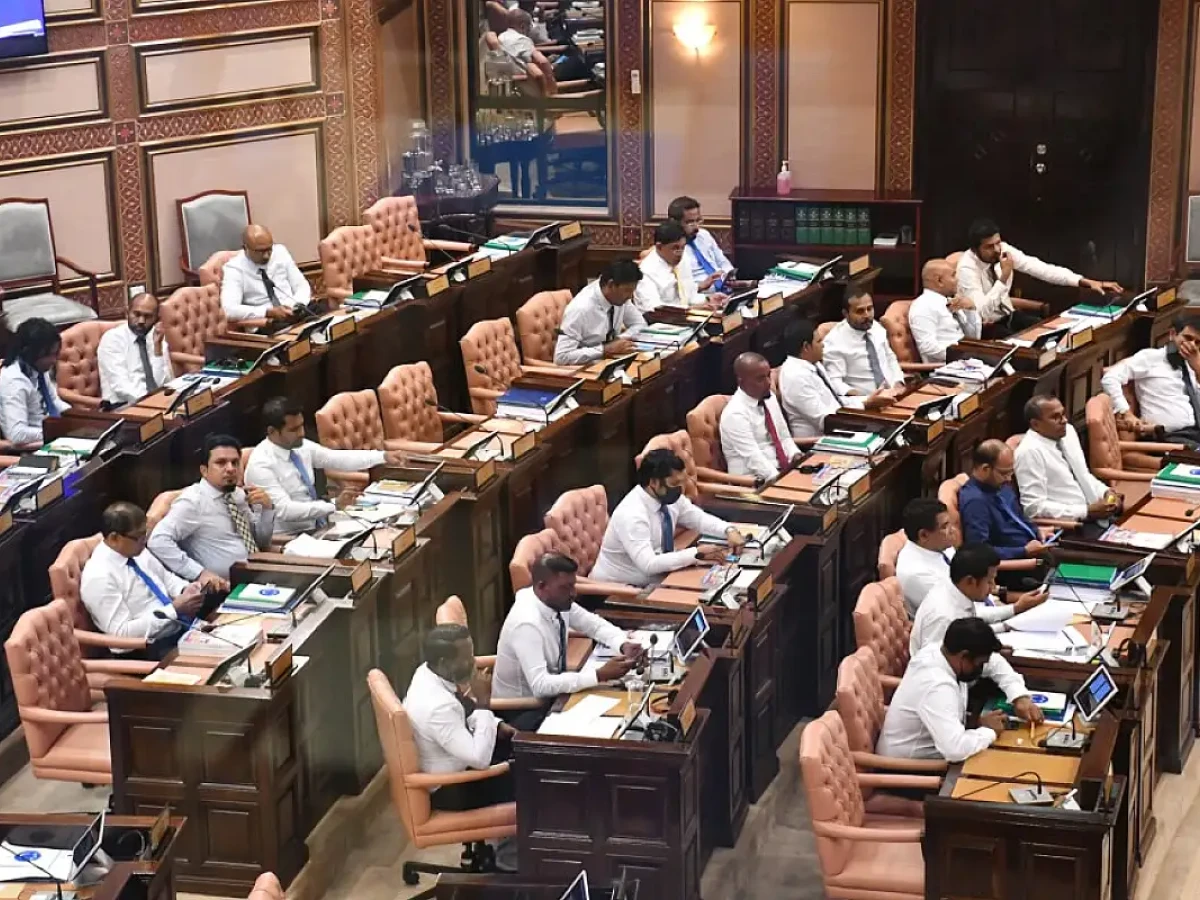
Proposed anti-defection law includes local councilors
If a decision is taken to remove the member by majority of the voters of that constituency, he or she will be disqualified from the membership.
By
Mohamed Muzayyin Nazim
The anti-defection bill proposed by the opposition Maldives Democratic Party (MDP) to prevent party switching after getting elected to the parliament has included councillors and members of women's development committees, but it does not include members of city councils.
The MDP announced that it had introduced the Anti-Defection Bill late last month. The bill has now been published on the parliament's website.
The purpose of the bill, moved by MDP Deputy Chairman, Baarah Constituency Member Ahmed Abdullah, is to:
-
Ensure that people’s elected members of parliament and atoll councils, island councils and women’s development committees set up for decentralisation of administrative areas are people who adhere to the political ideology they were elected to during their tenure
-
To ensure that people in elected positions are free from various political and financial influences and have the trust and confidence of the people
Chapter III of the bill describes three circumstances in which seats of members of atoll councils, island councils and women's committees may become vacant.
-
1-
After being elected on a party ticket, during the elected term, he/she submits their own resignation from the membership of the elected party and registers it with the Election Commission.
-
2-
Registration with the Election Commission as a member of a party other than the elected party.
-
3-
If an independent member becomes a member of any political party during the term for which he/she was elected.
If any of the three circumstances occurs, the person will be removed from the post from the date the Election Commission notifies the Local Government Authority.
The circumstances in which MPs' seats become vacant are described in Chapter II of the bill. It also states that if any of the three circumstances occurs, the person shall resign from the membership of Parliament from the date the Election Commission notifies the Parliament. Thus:
-
The cases of councillors and women's committee members include defection from the elected party and membership of another party
-
In addition, in cases where independently elected members defect to another party or are expelled by the elected party, they will be removed from the membership after a recall vote; if a decision is taken to remove the member by majority of the voters of that constituency, he or she will be disqualified from the membership
Within 30 days of the occurrence of the two recall votes, a recall vote must be taken to determine whether the member should remain in office.
The two situations that can allow this to happen:
-
Expelled from the elected party
-
Independent members sign up for a political party
There is no obstacle to a member contesting a by-election in the event of loss of seat for any reason. The by-election will be held under the procedures required by existing laws.
The amendments will come into force from the date of publication of the law in the Gazette once the bill is passed by Parliament and approved by the President.
In 2017, the Supreme Court ruled that a member of parliament would be removed if the member left or was expelled from the party he/she was elected to.
-
The law was passed by parliament and ratified by then President Abdullah Yameen
-
However, after differences of opinion, the law was annulled by a parliament majority on November 1, 2018
For the 19th parliament, which is now ending, 65 members were elected on the ticket of the then ruling MDP. However, the party now has about forty members.
The defectors include 12 who signed up for the ruling PNC with the change of government and 13 who joined The Democrats, which was formed amid differences within the MDP.




